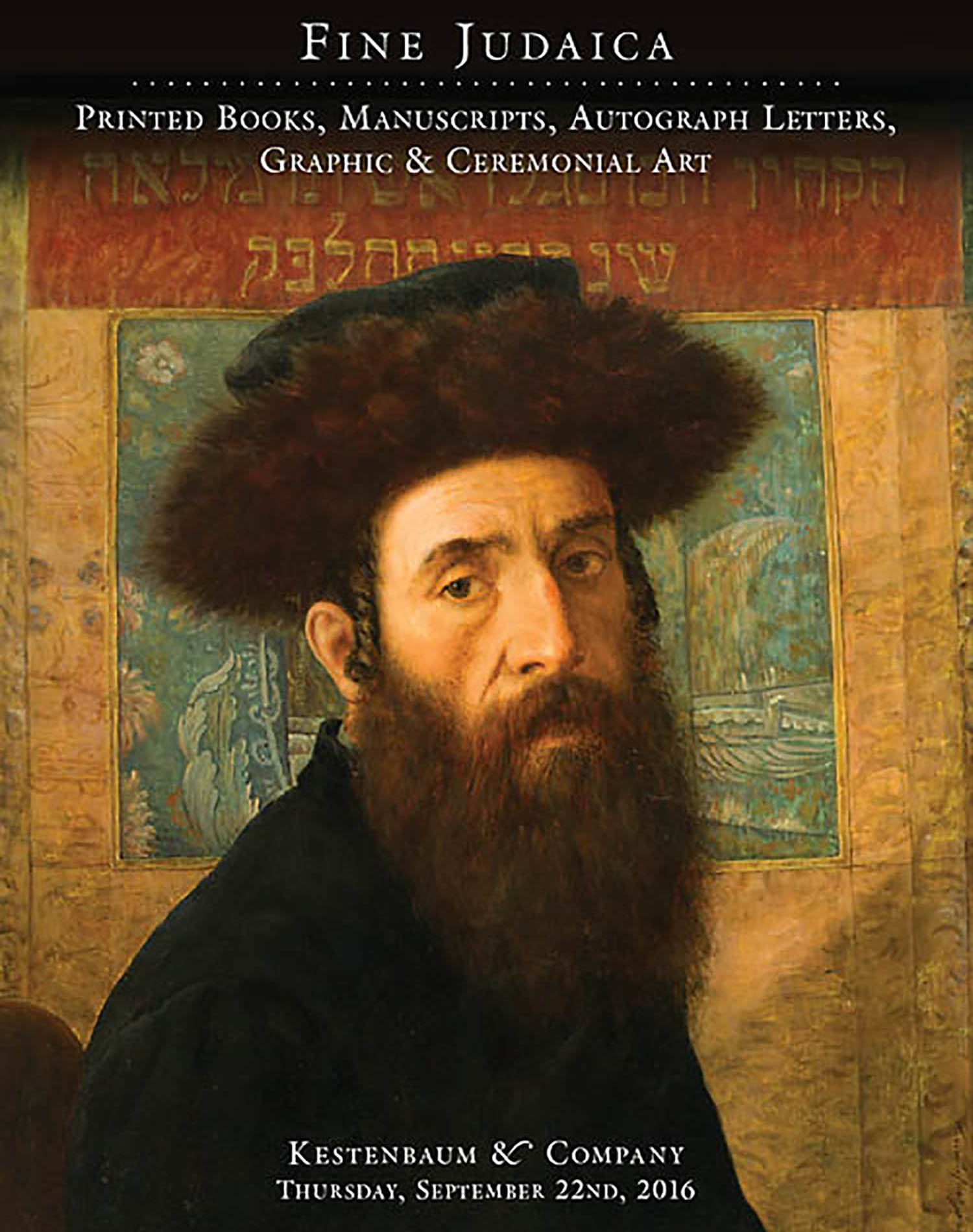Der Roemishcen Keyserlichen Maiestat Ordnung und Reformation guter Pollicey zu befurderung des gemeynen nutz.

AUCTION 70 |
Thursday, September 22nd,
2016 at 1:00
Fine Judaica: Printed Books, Manuscripts, Autographed Letters, Graphic and Ceremonial Art
Lot 254
(GERMANY).
Der Roemishcen Keyserlichen Maiestat Ordnung und Reformation guter Pollicey zu befurderung des gemeynen nutz.
Mainz: Schoffer 1548
Est: $2,000 - $3,000
One of the earliest printed regulations concerning Jews in Germany.
Regulations issued by the Holy Roman Emperor Charles V (1519-56) at the Reichstag in Augsburg in 1548, with rules on a range of topics including dress codes for different population groups (noblemen, clerics, etc.), money lending practices, blasphemy, printing, trade regulations, as well as regulations concerning beggars, musicians, various professional groups, etc.
Contains regulations against Jews in a chapter on usury, “Von Juden und irem Wucher” (ff. 20v-21r): Extraordinary high interest rates constitute usury, especially when applied to poor, uneducated population groups who do not know how to calculate. High and unmanageable debts have led many into crime. Lending against stolen goods is prohibited. Jews who charge overly high interest rates are denied residency rights and even protected Jews will be investigated by the authorities.
To place this in historical context: In 1520, the advocate-leader (shtadlan) of German Jewry, Josel von Rosheim (1476-1554), had procured a letter of protection from Charles V for all of German Jewry, which was confirmed ten years later by the Edict of Innsbruck. Von Rosheim succeeded in obtaining this protection, whereby Jews were expressly permitted to charge a higher rate of interest than Christians. This was justified by the fact that Jews had to pay higher taxes than Christians, moreover all employment relating to handicrafts, or cultivation of land, were prohibited to them.
